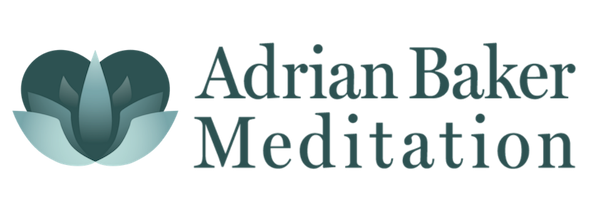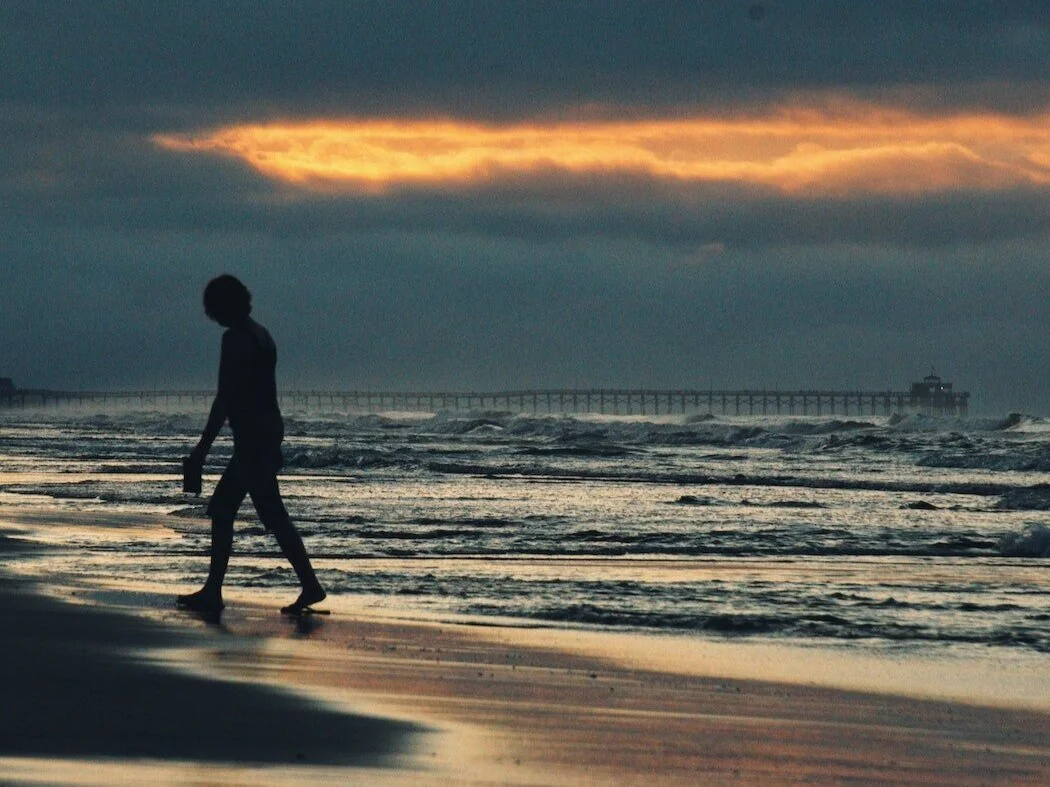Opening to the Vulnerability of This Life: How Meditation Can Help Us with Challenging Emotions
There are many births and deaths within a lifetime. In fact, we’re changing all the time: beliefs, interests, identities, jobs, relationships—these things come and go. Of course, there is the inescapable fact that all human beings, without exception, are subject to aging, disease, and death. Turning towards this truth opens us to a profound sense of vulnerability.
The coronavirus crisis reminds me that I want to face these fears, especially the anxiety I have around aging and dying. To the extent that I can embrace these truths more fully on a moment to moment basis, I will be able to live life with more wisdom, compassion, joy, and gratitude.
May I recognize more clearly just how precious this life is. May I open to the feelings of vulnerability that come with accepting my own mortality: to let go of the patterns that are holding me back from living life as fully as I can, loving as much I can, serving as much as I can.
While there’s nothing we can do to stop the aging of this body-mind, we can learn to change the way that we relate to this process of aging and dying. At this moment in time, we can shift the way that we work with the challenging emotions of fear, anxiety, and isolation.
The fact that we cannot get rid of our negative emotions any more than we can be free of our inevitable encounter with death is crucial to understand. We can ignore this fact, but if we push those feelings underneath the surface they will only become stronger and shape our psyche in ways of which we’re unaware.
Hiding does not offer us freedom from fear in the long run; on the contrary, it only builds a prison that is more subtle and difficult to deconstruct.
In spite of our resistance to facing the truth of our own mortality, time and again, against our deepest desires, circumstances compel us to admit that life is largely out of our control.
However, if we answer the call to open towards this truth, it can awaken us to a profound sense of vulnerability and tenderness of the heart. Recognizing that all of us share the same struggles cuts through the illusion of separation and isolation.
Mindfulness allows us to recognize more clearly what’s happening; compassion allows us to hold the suffering that is an inevitable part of this life within loving awareness. This is why a popular metaphor for awareness is that of a bird in flight: one wing of mindfulness and the other of compassion.
Compassion trains the heart to be able to turn towards what’s happening, even in the face of fear and difficulty. But this takes practice. Our natural instinct is to turn away from what’s difficult, lest we feel overwhelmed and fall to pieces, or out of the fear that we look weak.
I understand all too well what it’s like to resist the vulnerability that comes with recognizing my own mortality. Around three years ago, at the age of 36, I was diagnosed with osteoporosis, deterioration of one’s bone density and skeletal structure. Much to my shock, at my follow up exam a year and a half later, the situation had only become worse.
Having watched my parents go through as many as perhaps forty back and neck operations between the two of them, it was all too easy to visualize one of the discs in my back or neck going out or fracturing my hip. I imagined my life as I knew it coming to an end. In the initial aftermath of this news, the feelings and the mental stories layered on top of these feelings frequently pulled me into a trance of fear and anxiety.
Though the fear motivated me to do everything that I could to reverse my condition, additional feelings of anxiety about that which were beyond my control were not constructive responses to the situation. At the core of my mental anguish was really a failure to see clearly the nature of reality: it is simply the nature of the human condition to be subject to disease, aging, and death.
In essence, my refusal to open towards these feelings was a denial of my own humanity, for to receive the precious gift of a human birth also means to receive a death sentence.
To be human is to be vulnerable, and to be aware of this vulnerability. It is this awareness of our condition that is really what’s so challenging, yet it is also this same awareness that makes this human life so precious.
Intellectually, I knew that my body-mind would grow, get sick and die. But this always seemed far off. Sure, I knew something like this could happen, but I was attached to a belief that was the source of my suffering: “this shouldn’t be happening now.”
But is this belief really true? Why not now?
Of course, I want my doctors to figure out answers to these questions and I’m doing my best to reverse my condition, but what’s happening now has nothing to do with my preferences about what’s happening now: this is simply how things are in this moment.
While it’s highly unlikely for a man to develop osteoporosis in his 30s, clearly it’s possible. There are children with cancer. There are many people who develop far worse conditions at much younger ages. There are many people who die at a much younger age.
We know this is possible, but somehow we think that it won’t happen to us. Herein lies the problem, the cycle that keeps us from diving to our fears and illusions and becoming reborn into a person who can live life more courageously and compassionately.
After receiving this disturbing diagnosis, what would have been profoundly transformative would have been to take a moment to pause, to open to the feelings that were arising, and to sit with the feelings of vulnerability and tender heartedness that naturally come when we become more intimate with the process of aging.
Opening to vulnerability requires courage: a willingness to face the truth of whatever is arising within our body-mind. Mindfulness allows us to notice things just as they are, without judgment; compassion allows us to hold the difficulties of this moment with an expansive view and an open heart.
As I’ve navigated the ups and downs of the last year since my last examination--managing challenges to my health, going through a divorce, building a business--I’ve had to make this choice, again and again, to turn towards whatever is happening in my experience, rather than to resist it, no matter how unpleasant the present moment might be.
I could fracture my bones, perhaps even my spine, at any moment. I’m not sure why I haven’t yet. Maybe it will happen today, or next week, or in a year. Maybe it will never happen and I’ll reverse my osteoporosis.
It’s uncertain, isn’t it? Life is like this: it’s fundamentally uncertain.
Maybe I’ll live a long, healthy life until I die in my sleep at 100 years old, surrounded by my loved ones. But that’s just my ego’s fantasy about how things will work out. It’s important to notice the mind’s images of how you think life should be, to make sure that you’re not somehow buying into an idea of how things should work out in the future. That false belief is a hindrance to the life that you want to live, right here and now.
When our health is threatened, or even potentially threatened in a vivid way like now in the midst of a global pandemic, we start to recognize this immutable truth of our own mortality. Even faced with the threat of an illness with a very low mortality rate, there are many facets that draws us deeper into intimacy with the primal fear of death.
We’re faced with two options: resist reality or open to it.
The first choice does nothing to change what’s already outside of our control, but also adds an additional layer of suffering on top: the more you develop mindfulness through practice, the more clearly you can see that the resistance to what’s unpleasant (a sound, a thought, an emotion) is actually more unpleasant than the object of the aversion itself.
Another choice is that we accept the invitation to turn towards what’s happening, to open to the vulnerability of this body-mind to aging, disease and death. We want to turn away because we’re afraid to look at what’s unpleasant, but in our willingness to acknowledge the truth of this human condition we discover something that is greater than our fears.
Courage. Freedom. Compassion.
We develop the courage to turn towards the present moment when we realize that the alternative--resisting reality, living in illusion--is actually worse. We also develop this courage when we start to recognize that the freedom we desire requires us to face challenging emotions honestly. We can’t go around the emotion or over it or avoid it in any way. Ultimately, we must go through these emotions to be free of them. If there’s a feeling or a memory or a thought you’re afraid to look at, that’s a clue, pointing you towards something that needs to be worked with and ultimately cut through. There are more direct paths to freedom, but no easy ones.
A powerful practice for these difficult times is the practice of RAIN. RAIN allows us to turn towards challenging emotions, to open to them fully, and to hold these feelings within an awareness that is vast, loving and compassionate. Specifically, I like the version of this practice called, “The RAIN of Self Compassion,” which I learned from one of my teachers, Tara Brach.
You can practice The RAIN of Self Compassion on my YouTube channel or by watching the video below. If you try it and have comments, questions or reflections on your practice, I’d love to hear from you. You can share those thoughts on Adrian Baker Meditation on Facebook or Instagram.
May all beings be happy. May all beings be healthy. May all beings be free.




